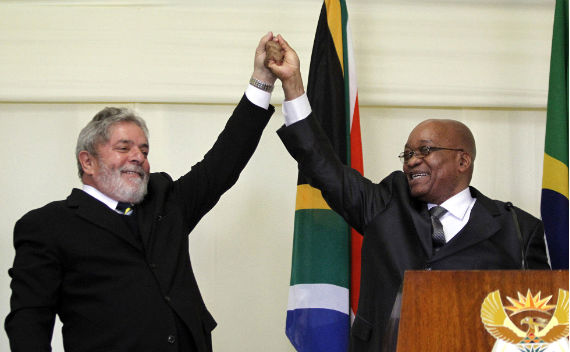Brazil is in Africa
More on:

American alarm, sometimes justified, sometimes not, over China’s engagement in Africa occasionally crowds out what other emerging countries are doing on the continent. I recently called on the Brazilian ambassador in Washington and some of his staff to talk about current African developments. What I heard about Brazil’s involvement with Africa is gratifying to friends of that continent and deserves to be better appreciated by an American audience.
Many Brazilians are of African origin. The Nigerian Ooni of Ife, paramount traditional ruler of the Yorubas, likes to say that Brazil has the second largest number of his people in the world, and he regularly visits northeast Brazil. When I served in Lagos in the late 1980’s, embassy staff sometimes traveled to the United States via Rio on Varig, then the Brazilian national carrier. But Brazil’s engagement with non-Lusophone countries was limited. Former president Luiz Inacio Lula da Silva changed that. Since 2003, Brazil has almost doubled its embassies in Africa, and it now has full-fledged diplomatic representation at the ambassadorial level in thirty-three out of fifty-four African nations, with two consulates-general, in Lagos and Cape Town. While former President Lula was in office, he visited twenty-one countries over the course of twelve trips to Africa. Brazil has also has established technical cooperation projects.
Commerce has followed Brazil’s new political and diplomatic activism. Trade between Brazil and African countries has multiplied fivefold since 2003, and now amounts to twenty-five billion dollars in value, according to the Brazilian embassy. Africa has become Brazil’s fourth largest trading partner, after China, Argentina, and the United States, and ahead of Japan and Germany.
A CFR Task Force recent report, Global Brazil and U.S.-Brazil Relations, recommends inter alia that U.S. policy makers recognize Brazil’s international standing and work with it to develop complementary policies. With Brazil’s expanded presence, new activism, and important commercial ties, Africa would be an appropriate theater for Washington-Brasilia bi-national consultation, coordination, and cooperation, in the spirit of the CFR Task Force recommendations.
Read the report here.
More on:
 Online Store
Online Store
